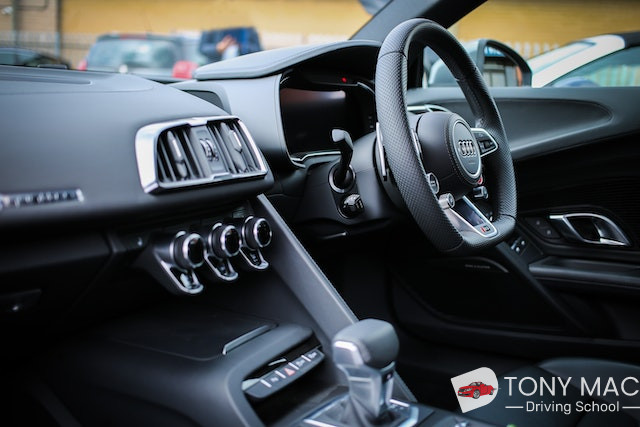Local Driving School: A Guide to Making Informed Choices
Driving is a necessary ability in today's busy world, enabling individual freedom, task chances, and a general sense of independence. However, getting a driver's license requires appropriate education and training. Driving More Support play a crucial role in teaching the skills essential for safe driving and helping new chauffeurs navigate the frequently complex world of traffic rules. view it provides an extensive summary of local driving schools, including what to consider when selecting one, the common curriculum offered, and regularly asked concerns.
Significance of Choosing the Right Driving School
Picking the ideal local driving school can considerably influence a learner's driving experience. A well-chosen school can offer thorough training, foster great driving routines, and increase the learner's confidence behind the wheel.
Advantages of Attending a Local Driving School
- Professional Instruction: Driving schools utilize trained instructors who are familiar with local laws and the functionalities of driving in the area.
- Structured Learning: Organized programs ensure that students construct skills methodically, progressing from fundamental ideas to more advanced driving techniques.
- Access to Vehicles: Many schools provide cars geared up with dual controls, enhancing safety during lessons.
- Preparation for the Driving Test: A great driving school will prepare trainees for the theoretical and practical elements of the driving test.
- Insurance Discounts: Completing a recognized driving course may make students eligible for vehicle insurance discounts.
Factors to Consider When Choosing a Local Driving School
When trying to find a driving school, it is crucial to assess numerous factors to ensure a favorable and efficient learning experience. Here are numerous aspects to think about:
Accreditation and Licensing:
- Verify that the driving school is certified and compliant with local guidelines.
- Inspect that instructors are licensed and qualified.
Track record:
- Research local schools by reading reviews and testimonials from former trainees.
- Try to find suggestions from family and friends who have gone through training.
Course Offerings:
- Inquire about the variety of courses readily available, consisting of standard driving lessons, defensive driving, and specialized courses for various age.
- Guarantee they offer both in-class and behind-the-wheel guideline.
Versatility and Availability:
- Consider the scheduling choices offered, consisting of evening and weekend classes that accommodate your availability.
- Inquire about the number of hours per lesson and the total program period.
Cost:
- Compare prices amongst numerous driving schools however bear in mind that the most affordable choice isn't constantly the very best.
- Investigate any concealed fees, such as extra costs for materials or car leasing.
Teaching Style:
- Ask prospective trainers about their mentor approaches and methods.
- Guarantee that their design matches your knowing choices for optimum effectiveness.
Area:
- Choose a school that is conveniently located. Proximity can conserve time and make it much easier to participate in lessons routinely.
Table: Comparison of Local Driving Schools
| Driving School Name | Accreditation | Number of Instructors | Course Offerings | Cost Range | Set up Flexibility |
|---|---|---|---|---|---|
| Safe Drive Academy | Yes | 10 | Basic, Defensive, Refresher | ₤ 300-₤ 600 | Weekdays & & weekends |
| Citywide Driving | Yes | 15 | Teen, Adult, Advanced | ₤ 350-₤ 700 | Versatile hours |
| Quick Test Driving | Yes | 5 | Fundamental, Night Driving | ₤ 250-₤ 500 | Nights only |
| Eco Drive Institute | Yes | 8 | Environmentally friendly Driving | ₤ 400-₤ 650 | Weekdays only |
Curriculum Overview
Local driving schools usually provide a thorough curriculum designed to deal with various discovering phases. While particular programs might differ, the following are common components discovered in most driving courses:
Theoretical Classroom Instruction:
- Understanding traffic laws and policies.
- Recognizing road indications and signals.
- Learning about lorry upkeep and safety checks.
Behind-the-Wheel Training:
- Driving in numerous road conditions (urban, rural, highway).
- Practicing parking skills, consisting of parallel parking and parking on a slope.
- Experience in dealing with challenging situations, like reacting to emergency situations.
Practice Tests:
- Mock driving tests to assist trainees get ready for the real exam.
- Review of common locations that trainees fight with during evaluations.
Parent/Guardian Involvement:
- Some programs encourage moms and dads or guardians to take part in the learning procedure, highlighting the importance of practice outside of structured lessons.
Post-Licensing Courses:
- Advanced defensive driving courses may be offered for those aiming to surpass their skills after obtaining their license.
Often Asked Questions (FAQs)
How long will it require to finish a driving course?
- The duration varies based upon the course structure; usually, classes can vary from a few weeks to a couple of months.
What age can someone start taking driving lessons?
- A lot of states enable individuals as young as 15 or 16 to begin driving lessons, depending upon the local regulations.
Do I require to bring anything to my first lesson?
- Generally, individuals need to bring a legitimate learner's permit (if suitable), comfortable clothing, and any required forms or payment.
What takes place if I fail the driving test?
- Many schools offer extra lessons to help students prepare for retesting.
Can I choose my instructor?
- Lots of schools permit students to request particular instructors, particularly if they feel more comfy with one specific mentor design.
Choosing the best local driving school is vital for a safe and positive driving experience. By thinking about vital aspects like accreditation, track record, course offerings, and teaching designs, potential motorists can make informed decisions tailored to their requirements. Participating in a driving school not just provides fundamental driving skills but also fosters accountable driving practices that will serve students well throughout their lives, making sure safety on the roads for themselves and others.

